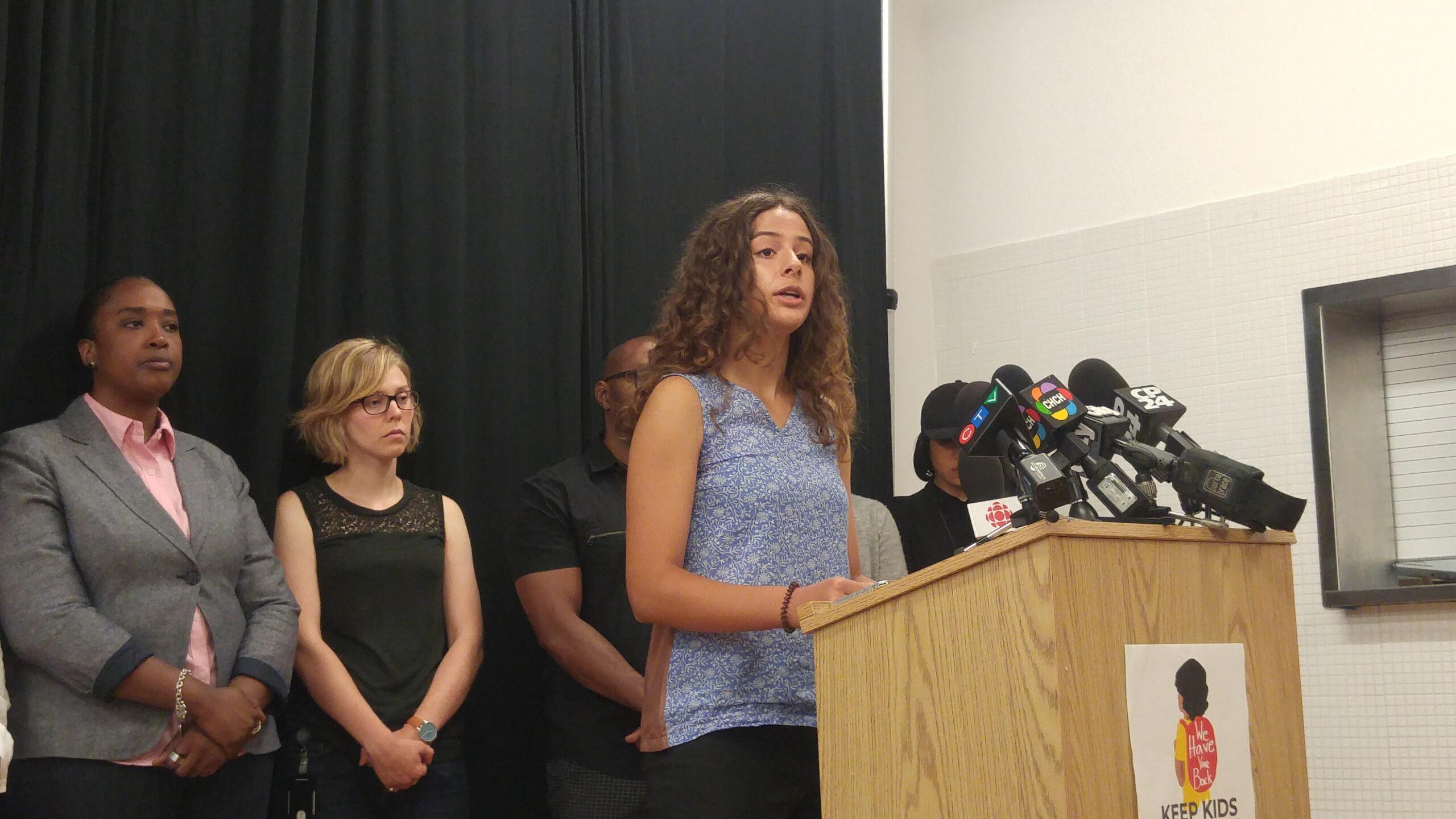Sara Escallon-Sotomayor knows a thing or two about trying to make schools a safer place for young people.
Earlier this year, she helped organize a walkout of students at three different Toronto schools to protest the continued employment of a teacher who had been accused of “sexualized behaviour” for years. He had been her teacher for five months.
That’s why she’s fighting back against the Doug Ford government’s move to return to the 1998 sex-education curriculum.
“Having more education as a young student and having the resources to express what’s happening to you, when you’re being exposed to sexual violence, is necessary,” she tells Xtra. “Because if not, it puts you at risk for more sexual violence.”
Escallon-Sotomayor, who is going into Grade 11, grew up with the old curriculum and she says that it’s woefully inadequate.
“The way that I learned about things, a lot of my education came from the internet or Googling things,” she says.
The old curriculum doesn’t cover topics such as LGBT families, consent, sexual orientation, gender identity and expression, and was introduced at a time before smartphones and social media.
Escallon-Sotomayor says that the vacuum of information put a lot of her friends in a troubling position. Besides the internet, she says that boys are another funnel for misinformation, especially if they have older siblings.
“The problem is they would use that information and kind of take advantage of girls,” she says.
At a press conference on July 13 at The 519 community centre in Toronto, Farrah Khan, the manager of Ryerson University’s office of sexual violence support and education, told reporters about her own experience with sexual violence as a young person.
“I was sexually molested from the ages of six to 16 and because I didn’t have comprehensive sexual health education,” she said. “Because I went to a school that did not talk about this, I was not able to give them the vocabulary that was available to me to speak about what happened.”
Khan tells Xtra that the kind of sex education that she received as a child put her in danger as a queer person.
“When I grew up, I didn’t know what the word lesbian was,” she says. “I just knew that I really wanted to hold my friend’s hand.”
When she was the victim of a gaybashing in high school, her classmates weren’t in a position to support her — they didn’t know how to help affirm her sexuality.
Jill Andrew, the newly elected NDP MPP for Toronto-St Paul’s, also didn’t get the kind of sex education she needed when she was a young person.
“I went to a high school on the east side and our education was ‘abstinence is best,’ so really that didn’t provide many options,” she says. “It certainly didn’t give us all the language, all the messages around safety, around respecting our body, around knowing how our body functions.”
Instead, what she got was a very clinical rundown of how the reproductive system works.
Andrew, who is queer and a survivor of child sexual abuse, says that the old curriculum simply doesn’t keep children safe.
“I’m here to tell you that when you do not have the right language, when you don’t know where to turn to, when you feel ostracized and excluded because your queer experience, your queer identity is erased from the story,” she says.
“You do feel like you do not matter.”

 Why you can trust Xtra
Why you can trust Xtra


